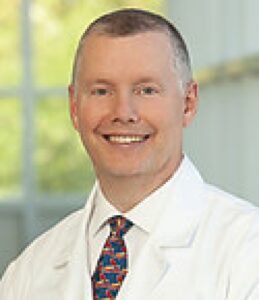
By Dr. Bill Blanke
Catholic Healthcare
When I volunteered to write the “Catholic Healthcare” column for this issue of The Message, I had planned to discuss the 48th anniversary of Roe v. Wade and some of the medical aspects of abortion and post-abortion complications.
Then, on Dec. 30, 2020, my mom Kathleen died peacefully in her sleep. She had lived most recently in a wonderful home for individuals with dementia where she was well-loved and cared for. Hospice was involved briefly at the end of her life. My dad died just over three years ago; and my siblings and I have been praying that when it was Mom’s time to die, she would go to sleep one night and not wake up. Thank you, St. Joseph, the patron saint of a peaceful death!
One theme of the pro-life movement is “protecting life from conception to natural death.” In this column, I will focus more on the natural-death end of the spectrum. Those familiar with my practice know I am the “crazy conservative Catholic” who actually believes what our Church teaches about natural family planning and openness to life.
Something you may not know, however, is that I am the Medical Director for Heritage Hospice, a private hospice agency, and have worked with this wonderful company for eight years. I have the privilege of working with patients and families at the end of life.
Some have questioned if hospice care is consistent with Catholic pro-life teaching. I freely admit that many in healthcare are not comfortable with the concept of “natural death” and believe that we should use every available resource to maintain life as long as possible. I encourage you to read the book “Being Mortal: Medicine and What Matters in the End,” by Atul Gawande, M.D., a general surgeon. This book has helped shape my hospice practice.
The “Ethical and Religious Directives for Catholic Health Care Services” from the United States Conference of Catholic Bishops provides guidance for Catholic Healthcare institutions; and specifically, one of the chapters addresses issues in care for the seriously ill and dying.
In early December, I “just happened” (aka closest moment to Christ in Cursillo language) to start reading a book my wife Dana had about near-death experiences. For those who have read this genre of a book before, it is so reassuring to read what people have experienced and then tried to describe. While it is not morally acceptable to speed up death (recall the reference against suicide and euthanasia above), it is absolutely morally acceptable to care for people in hospice and attend to them through the natural-death process. We can only imagine what awaits us.
As the third chapter of Ecclesiastes reminds us, “There is an appointed time for everything, and a time for every affair under the heavens. A time to give birth, and a time to die … a time to weep, and a time to laugh.” We of faith give thanks when a newborn arrives safely and there is much celebration, and we of faith also trust that in heaven even greater things await us.
Kathleen Blanke was blessed with a life of 87 years, a marriage to Jay for 64 years, and six children. She celebrated our weddings, supported us through our divorces and was thrilled with being a grandma. By the time this article is published, I will have already laughed and cried with my family in St. Louis. But it is our belief in heaven and the promise of eternal life that will help ease our sorrow. I still remember and pray for my younger sister Barb, my Dad, and now my Mom in my daily rosary.
“O Lord, life has not ended, but has merely changed; and when this earthly abode dissolves, an eternal dwelling place awaits them in heaven” (From the preface of the Mass for Christian Burial).
May Kathleen Blanke and all the souls of the faithful departed, through the mercy of God, rest in peace. Amen!
Dr. Bill Blanke practices family medicine in Evansville, and he serves as medical director for Heritage Hospice. He is a member of Evansville’s Good Shepherd Parish.
